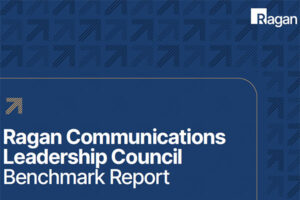Ragan exclusive: Theranos and Enron whistleblowers share business advice for comms
To mark National Whistleblower Day, Ragan recounts comms advice shared by two storied whistleblowers at our spring member retreat.

For the past 10 years, the United States Senate has recognized July 30th as National Whistleblower Day, which the National Whistleblower Center frames as an American tradition that “commemorates the bold vision of our Founding Fathers and their uncompromising support for whistleblowers.”
“This year marks the 245th anniversary of America’s first whistleblower law, passed unanimously on July 30th, 1778 during the height of the American Revolution,” the Center explains. “The law was passed after ten whistleblowers reported wrongdoing and abuses committed by a superior officer in the Continental Navy.”
While a vital part of American democracy, whistleblowers can have an outsized influence on the communications function. While leaking information can make our jobs more difficult, it also often exposes larger failings in the organization that allow for lapses in ethics or values.
This is no secret to Sherron Watkins, the former vice president of corporate development at Enron, who became a whistleblower when she exposed the company’s fraudulent accounting practices. Nor is it a new concept to Erika Cheung, the Theranos whistleblower who felt compelled to speak up about the former biotech company’s deceptive medical practices, Cheung now serves as executive director at Ethics in Entrepreneurship, a nonprofit focused on fostering ethical questions, culture and systems in business.
Both felt compelled by a moral obligation, a sense that their organizations were doing a disservice to shareholders, customers and employees alike.
Ragan editors caught up with them after their keynote sessions at the Ragan Communications Leadership Council spring retreat in Colorado Springs, when both gave advice about how communicators can become guardians of sound morals and ethics in business.
“Sharpen your professional fluency in asking the difficult questions,” said Watkins. She emphasized the importance of routinely asking questions like, “Is there anything else I should know in this? Is there anything else I’m missing in order to make the right decision here?” Ask to look at source documents.
“Those are important to make sure someone isn’t trying to keep you from understanding some wrongdoing,” she advised.
Watkins added that it’s crucial that comms understand how cash flow works on financial statements—understanding the difference between cash flow from operations, cash flow from financing activities and equity transactions.
Watkins offers more communications wisdom here:
Cheung said that entrepreneurs and communications leaders can make a huge mistake if they don’t think they will eventually come up against a moral or ethical dilemma in business.
“You’re going be faced with pressure, you’re going to be faced with opportunities that test your values,” she said. “It’s easy to rationalize when those pressures are there how you can maybe do the wrong thing, even if it’s a small, little grievance.” These small moral and ethical lapses, she continued, can easily snowball into a massive disaster.
Cheung also warned against the danger of carelessly creating hero stories around leaders when the stories ignore evidence pointing to ethical disconnects. This was certainly the case with Elizabeth Holmes, the Theranos founder whose fraudulent reports on the success of her proprietary medical technology drove Cheung to go public with what she knew. In that instance, the media truly wanted to believe that Holmes was changing the world for better. That urge dissuaded most from looking closer and discovering that the product was faulty.
To this end, communicators can take a page from a journalist’s raison d’être and be truth-tellers and do enough investigation to see if the claims they are presented with are real. “Are the details of what someone is telling me in this sort-of curated storyline… actually the reality of what’s going on there?” asks Cheung, explaining that the hype around Holmes’ promises and how much money she raised buried the tough questions.
“There’s some responsibility there,” she said. “The need for diligence, the need to always ask good questions just to vet and double check is the core premise of what we’re saying actually true?”
Cheung goes deeper here:
These conversations took place during the spring retreat of Ragan’s Communications Leadership Council. For more information about this winter’s retreat and joining the council, get in touch here!







